CP15: Further development of the sustainability assessment of future-oriented agricultural systems
The sustainability assessment of agricultural systems is becoming increasingly important in research and social discourse. An important aspect of sustainability is the environmental impact of the systems under consideration. To this end, in the first funding phase of this subproject NOcsPS, conventional and organic cropping systems were compared using a life cycle analysis. This revealed challenges and limitations in the sustainability assessment (Meyer et al. 2021), on the one hand due to the lack of standardized assessment procedures, and on the other hand because different objectives and interests cannot be integrated in a structured way. Managing the resulting diversity of assessment indicators is challenging. There is a lack of interpretation tools that support the formulation of recommendations for action. Likewise, regional differences cannot usually be considered, which makes it difficult to transfer the results of a specific assessment to other locations.
The aim of this subproject is to further develop the model established in the first funding phase for the differentiated assessment of cropping systems in terms of site selection and cultivation practices.
The focus is on developing an improved and site-specific model based on adapted production methods and techniques, as well as associated field emissions. This should facilitate interpretability and the formulation of recommendations for action in operational practice and policy measures by means of weighting, normalization or monetization.
In collaboration with the Sustainability Assessment cluster, the aim is to contribute to more sustainable agricultural and food systems based on the innovations, cropping systems and technologies examined.
Various work steps are planned for the second funding phase:
- Updating the life cycle analysis with regard to emission factors for machine use and the production of means of production.
- Specify the modeling of field emissions.
- Identification of hotspots and trade-offs for the first 4 experimental years.
- Improving the interpretability of the results and formulating recommendations for action, using different weighting and monetization approaches, for the comparison and evaluation of NOcsPS cropping systems.
- The final results of the subproject include the description of an improved, site-specific methodology for cropping systems, as well as recommendations for dealing with trade-offs and for designing a more sustainable NOcsPS cropping system.
The collaboration in the “Sustainability Assessment Working Group”, which was organized by DAKIS, f4f and NOcsPS in the first phase of the project, will continue in the second phase. The collaboration aims to develop a common understanding of sustainability, improve assessment methodology and data availability, and strengthen stakeholder engagement, and will synthesize a framework for sustainability assessment in agricultural systems of the future. The focus of the exchange is on colloquia in which young scientists present their research. NOcsPS plays a leading role in the organization of the colloquia, the development of the framework and the synthesis of the various concepts and research results from the consortia.




